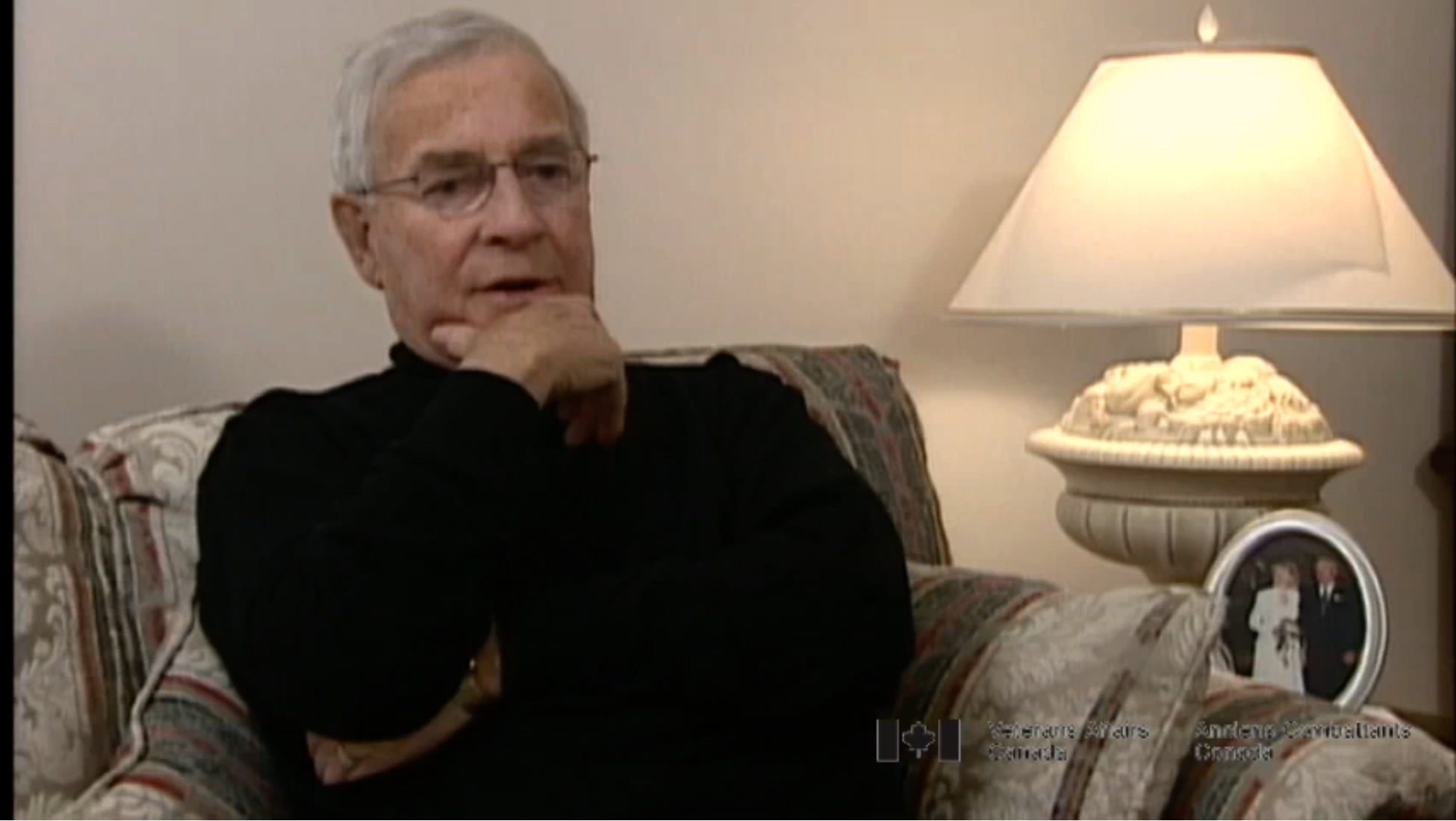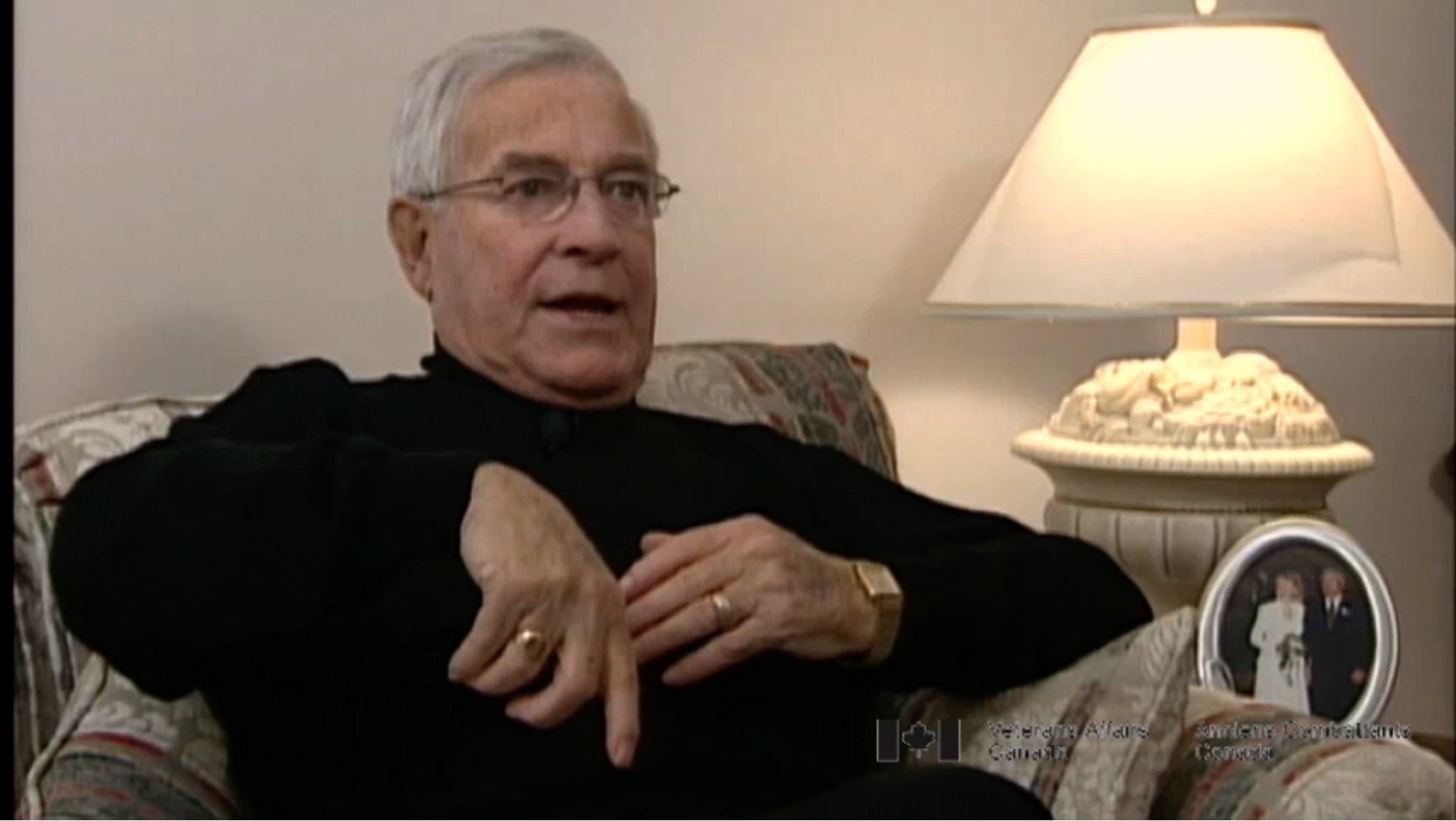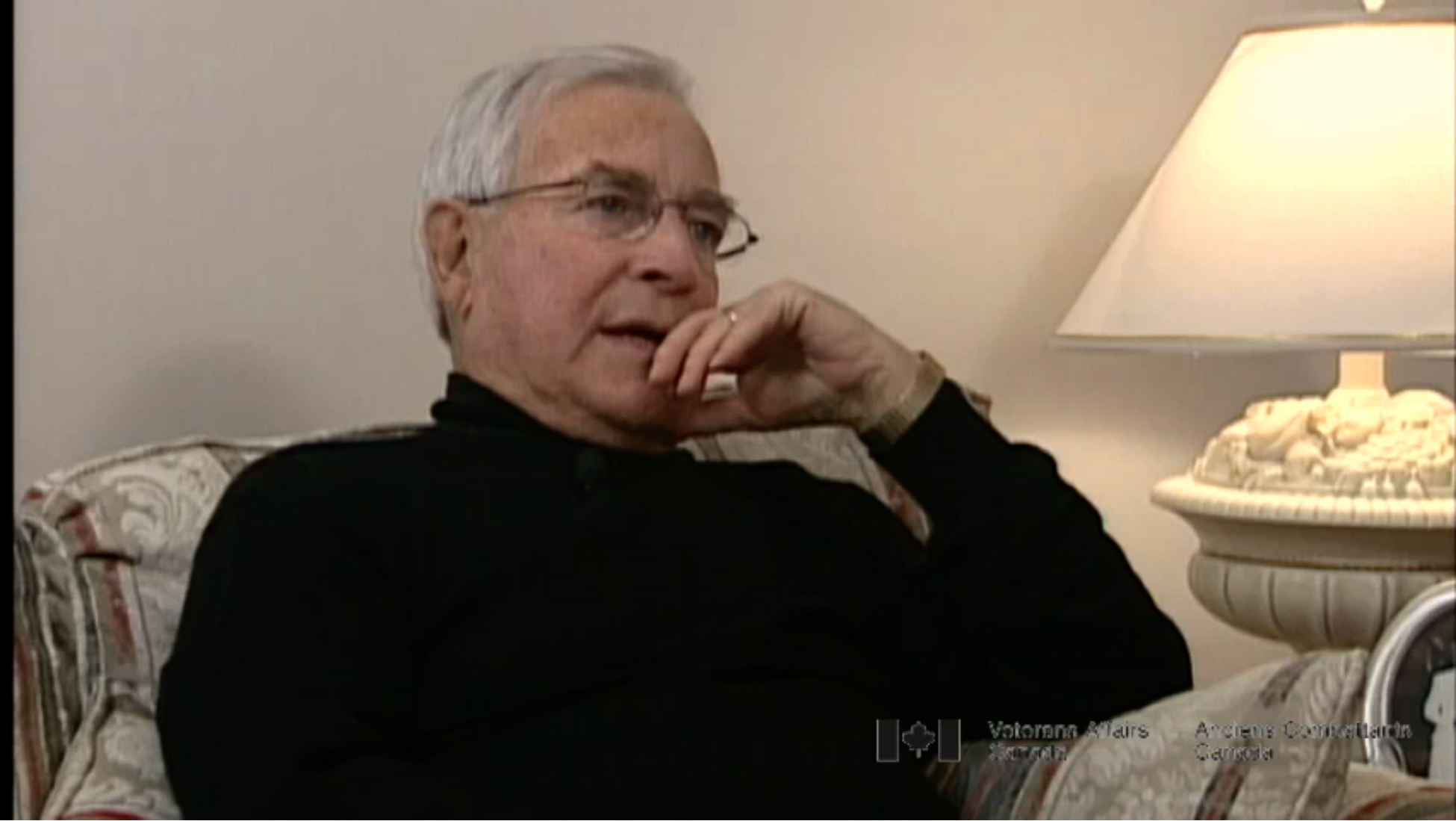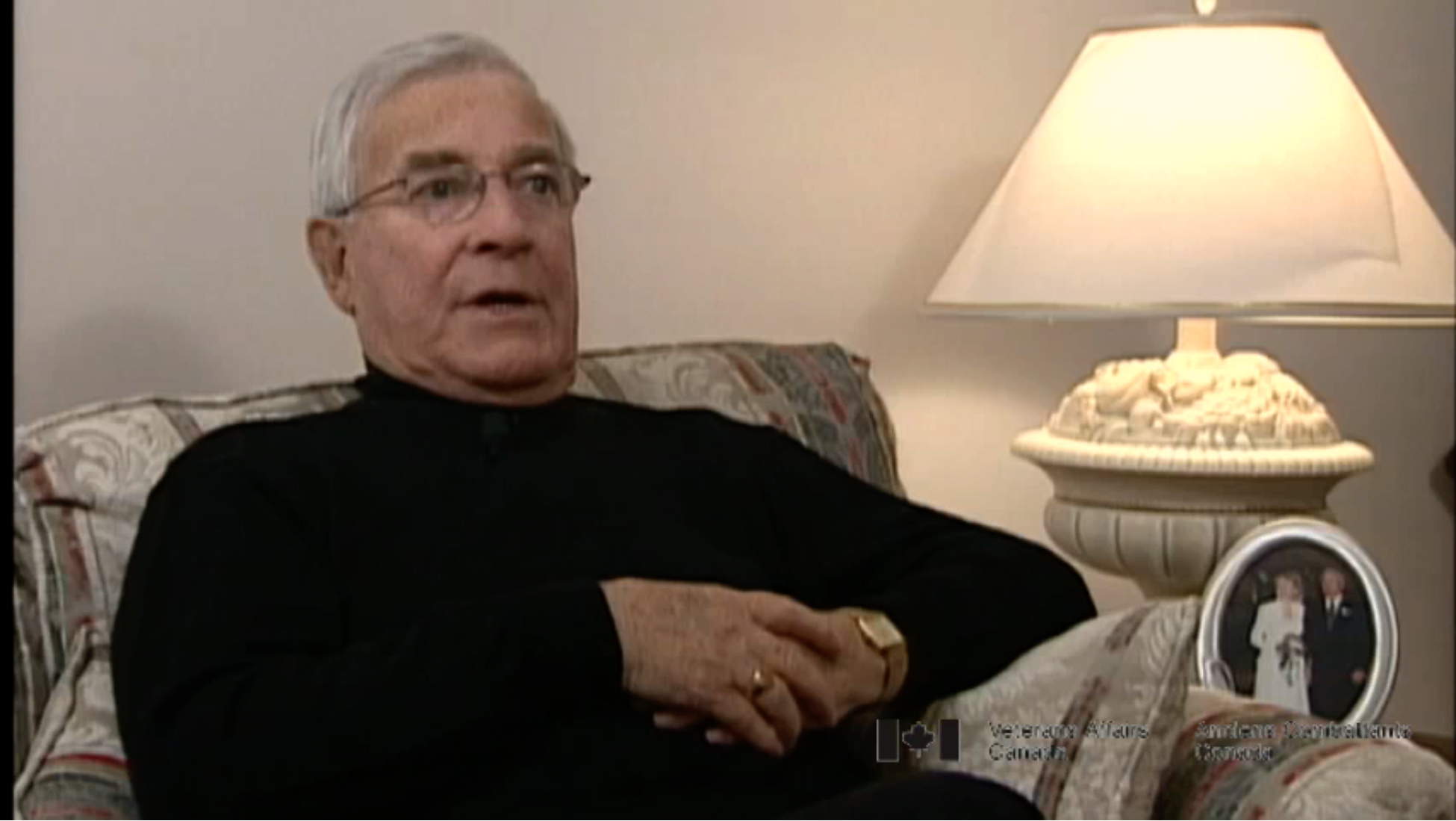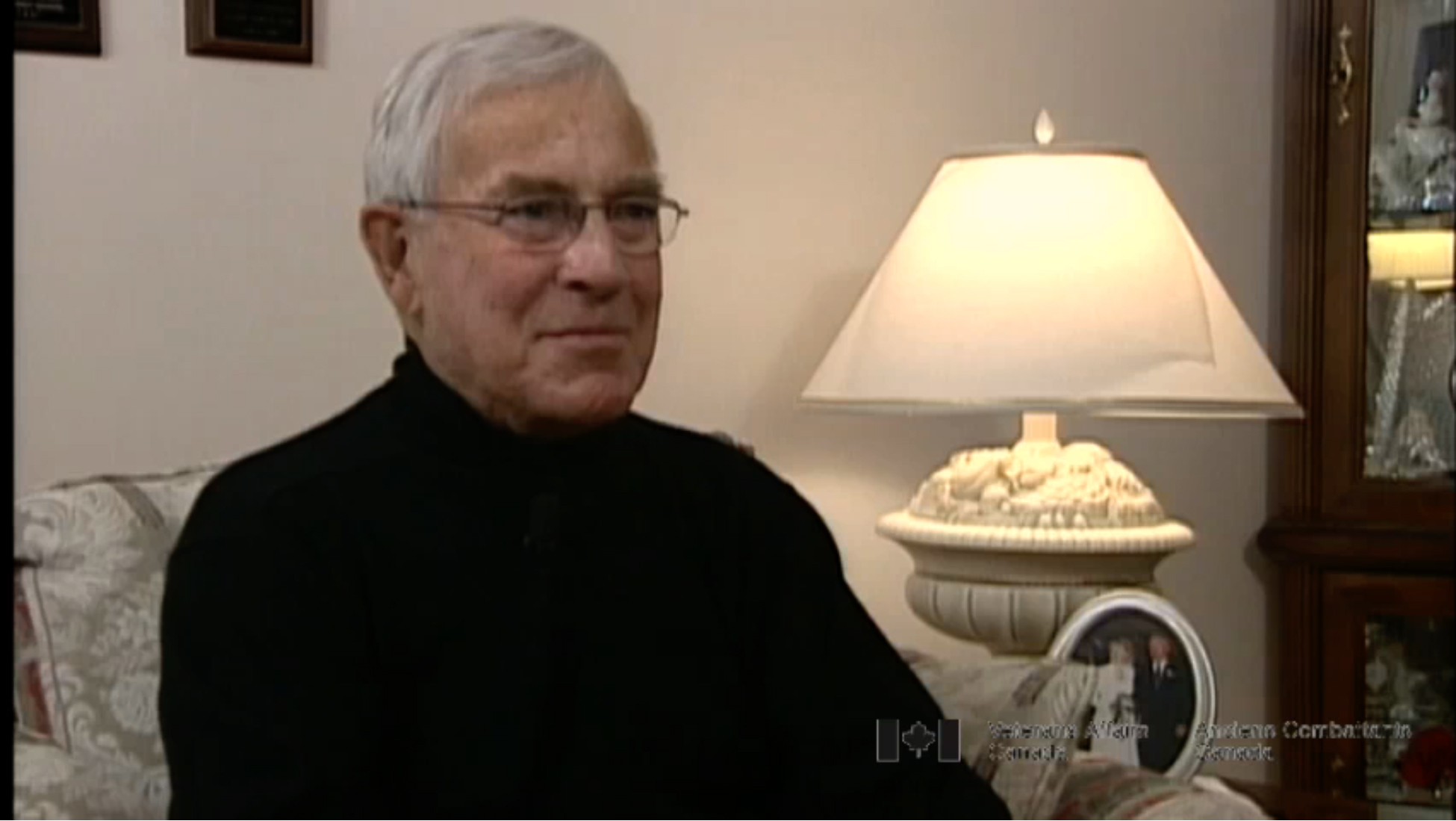Sinking of the Guysborough
Heroes Remember
Sinking of the Guysborough
Transcript
Description
Mr. Doherty recalls hearing of the sinking of the Guysborough, and how it affected him emotionally.
Ivan Doherty
Mr. Doherty was born on May 4, 1926, in Boston, Massachusetts. His family having originally been from Charlottetown, Prince Edward Island, decided to return soon after his birth. His father left the family soon after moving to Charlottetown, Mr. Doherty was raised by his mother and grandparents. Soon after turning 15, Mr. Doherty and a friend of the same age, eager for excitement and to see the world, became very anxious to join the Navy. His friends father, understanding that the boys would not be deterred, convinced a recruiter to ignore their age and allow them to join on May 21, 1941. Promising his mother and grandparents to continue with his education, they did not attempt to have him discharged. As he was found to be colour-blind, Mr. Doherty was only allowed to join the Navy as a stoker below decks. After two months basic training, and an 18 month posting in Shelburne, Nova Scotia, he was drafted to the Guysborough, escorting convoys across the North Atlantic, and sweeping the French coast for mines in preparation for the D-Day invasion. In addition to serving as a stoker (Acting Petty Officer), Mr. Doherty acted as a depth charge loader in his off-duty action station. After D-Day, Mr. Doherty left the Guysborough to take a Petty Officer course, but after several delays was drafted to the American carrier, HMS Puncher as a Killick (with the same duties as Acting Petty Officer), escorting convoy ships on the Murmansk Run. Still on the HMS Puncher on VE-Day, Mr. Doherty and the rest of the crew volunteered for the Pacific battle, but it finished before any could enter. Mr. Doherty stayed on the HMS Puncher ferrying troops home across the Atlantic, until he returned home to Charlottetown in September 1945.
Meta Data
- Medium:
- Video
- Owner:
- Veterans Affairs Canada
- Duration:
- 4:53
- Person Interviewed:
- Ivan Doherty
- War, Conflict or Mission:
- Second World War
- Location/Theatre:
- Canada
- Branch:
- Navy
- Rank:
- Acting Petty Officer
Related Videos
- Date modified:



